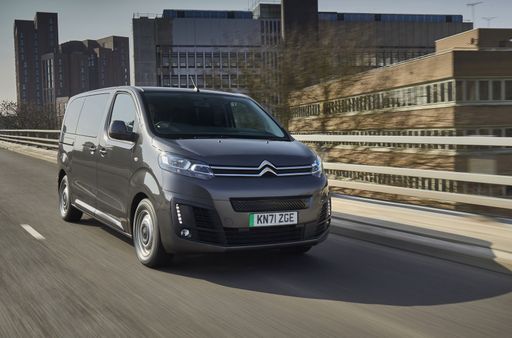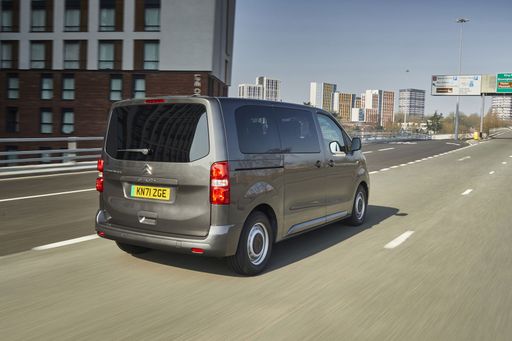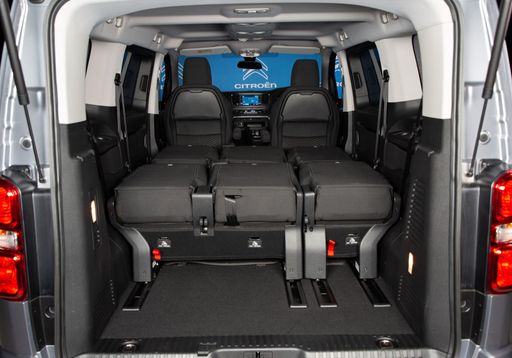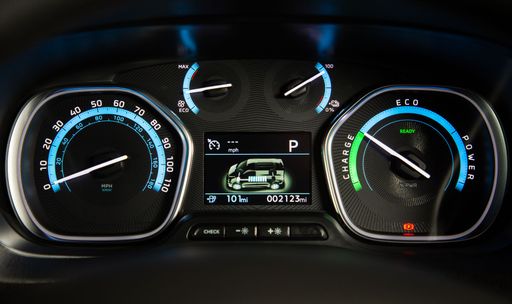Citroen Spacetourer VS Hyundai Kona – Specs, Efficiency & Price Comparison
Which model is the better choice – the Citroen Spacetourer or the Hyundai Kona? We compare performance (177 HP vs 218 HP), boot capacity (2011 L vs 466 L), efficiency (24.30 kWh7.30 L vs 14.60 kWh4.50 L), and of course, the price (33100 £ vs 23100 £).
Find out now which car fits your needs better!
The Citroen Spacetourer (Bus) is powered by a Electric or Diesel engine and comes with a Automatic transmission. In comparison, the Hyundai Kona (SUV) features a Petrol, Full Hybrid or Electric engine and a Manuel or Automatic gearbox.
When it comes to boot capacity, the Citroen Spacetourer offers 2011 L, while the Hyundai Kona provides 466 L – depending on what matters most to you. If you’re looking for more power, you’ll need to decide whether the 177 HP of the Citroen Spacetourer or the 218 HP of the Hyundai Kona suits your needs better.
There are also differences in efficiency: 24.30 kWh7.30 L vs 14.60 kWh4.50 L. In terms of price, the Citroen Spacetourer starts at 33100 £, while the Hyundai Kona is available from 23100 £.
Compare all the key specs now and find out which model fits your lifestyle best!
Citroen Spacetourer
The Spacetourer redefines versatility with its spacious interior and comfortable seating for families and groups. Its stylish exterior and thoughtful design features make it not just a practical choice, but an attractive one for modern drivers. Whether for daily commutes or adventurous road trips, the Spacetourer seamlessly blends functionality and flair.
details @ media.stellantis.com
@ media.stellantis.com
 @ media.stellantis.com
@ media.stellantis.com
 @ media.stellantis.com
@ media.stellantis.com
 @ media.stellantis.com
@ media.stellantis.com
Hyundai Kona
The Hyundai Kona blends a bold design with a versatile interior, making it a standout choice in the compact SUV market. Its crisp handling and responsive steering provide an engaging driving experience, whether in the city or on the open road. The vehicle also offers a range of features designed to enhance comfort and connectivity, ensuring a pleasurable journey for both driver and passengers.
details @ hyundai.news
@ hyundai.news
 @ hyundai.news
@ hyundai.news
 @ hyundai.news
@ hyundai.news
 @ hyundai.news
@ hyundai.news

|

|
|
|
|
Costs and Consumption |
|
|---|---|
|
Price
33100 - 52100 £
|
Price
23100 - 41600 £
|
|
Consumption L/100km
7.3 - 7.4 L
|
Consumption L/100km
4.5 - 6.9 L
|
|
Consumption kWh/100km
24.3 - 24.9 kWh
|
Consumption kWh/100km
14.6 - 16.8 kWh
|
|
Electric Range
217 - 351 km
|
Electric Range
377 - 514 km
|
|
Battery Capacity
-
|
Battery Capacity
1.3 - 65.4 kWh
|
|
co2
0 - 194 g/km
|
co2
0 - 157 g/km
|
|
Fuel tank capacity
70 L
|
Fuel tank capacity
38 - 47 L
|
Dimensions and Body |
|
|---|---|
|
Body Type
Bus
|
Body Type
SUV
|
|
Seats
8 - 9
|
Seats
5
|
|
Doors
5
|
Doors
5
|
|
Curb weight
1953 - 2240 kg
|
Curb weight
1370 - 1773 kg
|
|
Trunk capacity
1624 - 2011 L
|
Trunk capacity
466 L
|
|
Length
4983 - 5333 mm
|
Length
4350 - 4385 mm
|
|
Width
1920 mm
|
Width
1825 mm
|
|
Height
1890 mm
|
Height
1580 - 1585 mm
|
|
Payload
850 - 914 kg
|
Payload
420 - 490 kg
|
Engine and Performance |
|
|---|---|
|
Engine Type
Electric, Diesel
|
Engine Type
Petrol, Full Hybrid, Electric
|
|
Transmission
Automatic
|
Transmission
Manuel, Automatic
|
|
Transmission Detail
Automatikgetriebe
|
Transmission Detail
Schaltgetriebe, Automat. Schaltgetriebe (Doppelkupplung)
|
|
Drive Type
Front-Wheel Drive
|
Drive Type
Front-Wheel Drive, All-Wheel Drive
|
|
Power HP
136 - 177 HP
|
Power HP
100 - 218 HP
|
|
Acceleration 0-100km/h
10.6 - 12.1 s
|
Acceleration 0-100km/h
7.8 - 13.3 s
|
|
Max Speed
130 - 185 km/h
|
Max Speed
162 - 208 km/h
|
|
Torque
260 - 400 Nm
|
Torque
200 - 265 Nm
|
|
Number of Cylinders
4
|
Number of Cylinders
3 - 4
|
|
Power kW
100 - 130 kW
|
Power kW
74 - 160 kW
|
|
Engine capacity
1997 cm3
|
Engine capacity
998 - 1598 cm3
|
General |
|
|---|---|
|
Model Year
2024
|
Model Year
2024
|
|
CO2 Efficiency Class
A, G
|
CO2 Efficiency Class
D, C, E, F, A
|
|
Brand
Citroen
|
Brand
Hyundai
|
Citroen Spacetourer
Meet the Citroën Spacetourer: A Versatile Electric Option for Modern Families
The automotive world has seen a remarkable shift towards sustainability, and the Citroën Spacetourer stands out as a prime example of this evolution. With its compelling design and impressive electric capabilities, the Spacetourer addresses the needs of large families, businesses, and adventure seekers alike.
Innovative Electric Powertrain
The Spacetourer line features a robust electric powertrain that is designed to offer both efficiency and performance. Available in multiple configurations, including the e-Spacetourer M and XL versions, customers have the flexibility to choose between battery sizes of 50 kWh and 75 kWh. The electric motor delivers a consistent output of 136 horsepower, ensuring a smooth driving experience with a torque of 260 Nm.
Moreover, the Spacetourer is engineered for efficiency, boasting a consumption rating as low as 24.3 kWh/100km, depending on the variant. This efficiency translates to an electric range of up to 351 km on a single charge, making it an ideal companion for both daily commutes and long-distance travels.
Practicality Meets Comfort
The design of the Citroën Spacetourer is inherently practical. Available in configurations for 8 to 9 seats, it can comfortably accommodate larger groups without compromising individual space. The interior is thoughtfully designed, providing ample headroom and legroom for all passengers. With a trunk capacity ranging from 1624 liters to an impressive 2011 liters, the model ensures that you won’t have to leave anything behind on your journeys.
In addition to passenger comfort, the Spacetourer features a maximum payload capacity of up to 914 kg, allowing it to handle heavier loads with ease. This makes it perfect for business use or family trips where luggage and equipment are often in tow.
Safety and Driving Innovations
The Citroën Spacetourer is not just about space and efficiency; it also prioritizes safety and technology. Equipped with advanced safety features, the vehicle ensures peace of mind for every journey. From automatic emergency braking systems to lane departure warnings, the Spacetourer incorporates the latest in automotive safety technology to keep its occupants secure.
Additionally, the Spacetourer integrates modern connectivity features. A user-friendly infotainment system, compatible with both Android and Apple devices, allows drivers and passengers to stay connected while on the go. With options for Bluetooth connectivity and navigation, long trips can feel less tedious and more enjoyable.
Environmentally Friendly Choice
With zero CO2 emissions, the Spacetourer proudly fits into the A efficiency class for CO2 ratings. As cities worldwide become increasingly stringent on emissions, an electric vehicle like the Spacetourer is an efficient choice for both local and urban driving. The ease of charging, combined with the van's long range, addresses the common concerns associated with electric vehicles, making it a pragmatic option for environmentally conscious consumers.
The Verdict: Is the Citroën Spacetourer Right for You?
Considering its blend of space, comfort, and advanced electric technology, the Citroën Spacetourer is an attractive proposition for families and businesses alike. As electric-powered vehicles continue to dominate discussions in the automotive industry, the Spacetourer takes a commendable step forward, offering an impressive balance of practicality and innovation. Whether you're running errands, planning a road trip, or managing a small business, the Spacetourer rises to meet every demand with style and sustainability.
Hyundai Kona
The Hyundai Kona: A Comprehensive Overview
The Hyundai Kona has established itself as a standout in the compact SUV segment, blending innovation with performance and style. As the automotive world moves towards more sustainable and efficient options, the Kona offers a variety of powertrains, from traditional petrol engines to full hybrids and all-electric models.
Powertrain Options and Performance
The Hyundai Kona's powertrain choices cater to a wide range of preferences. For petrol enthusiasts, the Kona offers a 1.0L T-GDI engine, delivering 100 PS, and a more robust 1.6L T-GDI variant with up to 170 PS. Those looking for efficiency without sacrificing power can consider the full hybrid model, offering 129 PS and an impressive consumption of 4.5 L/100km.
For a greener option, the all-electric Kona provides a compelling case. With battery capacities of up to 65.4 kWh, the electric Kona offers power outputs of 156 to 218 PS, and efficiencies as low as 14.6 kWh/100km, enabling an electric range of up to 513 km.
Technical Specifications and Innovations
Built on a robust platform, the Kona delivers versatility and reliability. With a choice between manual or dual-clutch automatic gearboxes, along with options for front-wheel or all-wheel drive, the Kona ensures a tailored driving experience. The handling is enhanced by the car's lightweight construction, balancing a 1370 to 1773 kg curb weight with dynamic performance.
The Kona's design doesn't compromise cargo space for style; it offers a generous 466 L boot capacity. With a relatively compact body, measuring 4350 to 4385 mm in length, the Kona easily navigates urban environments while still commanding a strong road presence with its 1825 mm width.
Efficiency and Eco-Friendliness
Hyundai is committed to reducing emissions, as evidenced by the Kona's CO2 efficiency ratings, which range from class A for electric models to class D for some higher-performance petrol variants. The focus on reducing environmental impact without sacrificing driving pleasure is notable throughout the Kona range.
Costing and Value
The Hyundai Kona offers commendable value for money. Pricing starts at €26,400 and reaches up to €50,690, depending on the chosen configuration. The monthly running costs range from €956 to €1090, with a cost per kilometre of 38.3 to 43.6 cents, making it a competitive option in its class.
Conclusion: Modern, Efficient, and Versatile
The Hyundai Kona stands as a testament to Hyundai's commitment to innovation, efficiency, and practicality. Whether you are inclined towards a traditional combustion engine, a hybrid for a balance of power and efficiency, or a full electric model for maximum eco-friendliness, the Kona provides a tailored solution for each unique driver preference.
The prices and data displayed are estimates based on German list prices and may vary by country. This information is not legally binding.
